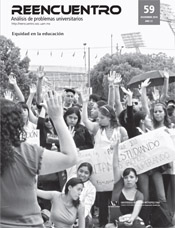Desigualdad de acceso a la educación superior en el Reino Unido
Keywords:
educación superior, higher education, inequality, desigualdadAbstract
An increase in the number of places available in higher education (HE) may not necessarily mean that more of the student intake will come from less privileged social groups. The United Kingdom has tried to widen access without changing its meritocratic system of selection. Intellectual merit depends on income, cultural capital and opportunities which are unequally distributed. In 1963, 70% of students paid neither fees nor living costs but only 4% of the age group reached he. At present, 35% of the age group reach HE but all of them have to pay. They graduate with massive debts. This situation favours those from middle class families. The proportion of students from less privileged groups in HE has remained the same despite the massive expansion.






